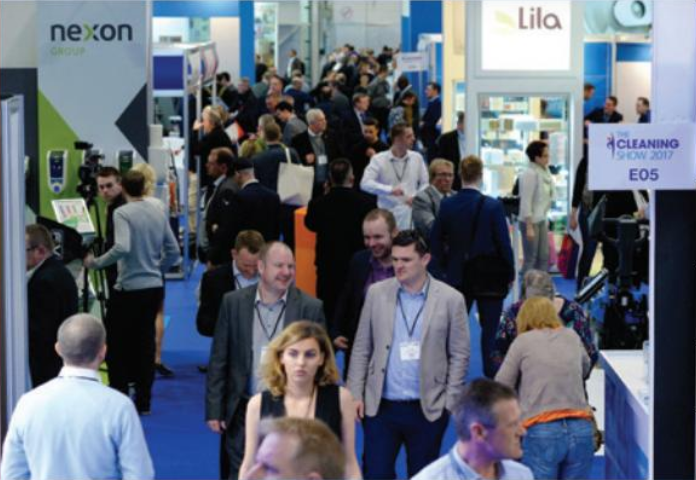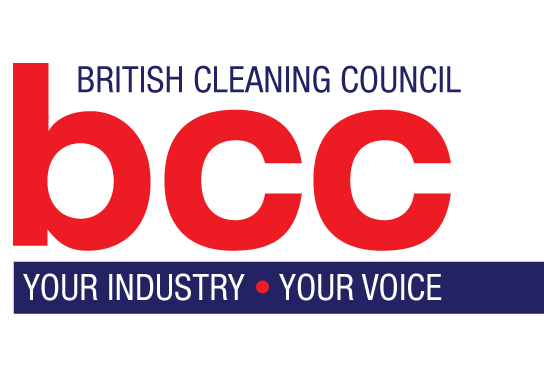
Latest News
Key Cleaning Industry Leaders Meet to Discuss Plans to Make Sure the Sector’s Voice is Heard by Government
Key cleaning and hygiene industry leaders have held a high-level meeting in London to discuss working together on a strategy for the sector to achieve improved Government recognition.
The British Cleaning Council (BCC) invited a number of its association members and business leaders to join it and lobbying experts for an initial meeting to scope out the potential for sector organisations to develop a unified and aligned strategic approach.
Among the attendees were David Garcia, Jim Melvin and Simon Hollingbery of the BCC, David Wheadon of the National Carpet Cleaners Association (NCCA), Neil Spencer-Cook of the British Institute of Cleaning Science (BICSc), Paul Ashton of the Cleaning & Support Services Association (CSSA), Lorcan Mekitarian of the Cleaning & Hygiene Suppliers Association (CHSA), Kevin Meighan and Darren Marston of the Worshipful Company of Environmental Cleaners (WCEC).
The representatives discussed issues including:
- collective aims in terms of Government recognition and relationships
- the processes, requirements, attendees and commitment needed to succeed
- initial thoughts in terms of a uniform strategic approach
- key strategic points to interest and assist the Government to build relationships
- how marketing the project would be undertaken
- costs and contributions
- the leadership of this project.
Attendees enjoyed a lively and mostly aligned debate and unanimously agreed to resume the conversation in January.
The BCC’s director leading on lobbying, Jim Melvin, said: “The fact is that, although we have made some progress, our sector is still not being prioritised or even listened to as much as we would like by the Government.
“We do not get anything like the recognition our industry should get as a £69 billion sector whose 1.49 million staff are regularly on the frontline keeping the public healthy, safe and well.
“Our skilled, technical and highly-professional industry is perfectly-placed to give expert advice to the Government in a number of areas, yet we are simply overlooked.
“I am very pleased that we were able to get round the table with key leaders in the industry to begin initial discussions on our future strategy for the industry. I thank them for giving up valuable time to attend.
“This is a very diverse industry with a great many component parts which we must ensure that we include and fully cover.
“We are looking to find key priority areas where we can work together to achieve progress for the industry as a whole.
“By combining together, we can offer an overall strategy that can tangibly evidence our professionalism to the Government and fully demonstrate that our expertise is invaluable.
“This was a very useful initial meeting. There was a clear feeling around the table that the industry needs to speak with one, strong voice. I look forward to continuing this conversation in the new year.”
As part of the discussion, the meeting was updated on the extensive and ongoing lobbying programme led by the BCC.
The steps taken since April this year include:
- Positive meetings with MPs Linsey Farnsworth, Jim Dickson and Luke Charters, as well as with William Cook of the UK Health Security Agency (UKHSA) and Sebastian Rees of the Institute For Public Policy Research (IPPR).
- We have also been in contact with, or are reaching out to, the UK Resilience Academy, the Royal Society for Public Health (RSPH), the Healthy Places and AMR All-Party Parliamentary Groups, Assist FM and Dr Beccy Cooper MP.
- The BCC published the Strategic Framework For Achieving Cleanliness And Hygiene in Public Environments, which gives systematic advice on clear and effective cleaning standards across workplaces and public spaces in the UK. The document was shared widely with MPs, Government ministers and key bodies.
- The BCC is developing a pilot project which will see the framework implemented in one or more schools, with evidence being collected to demonstrate the impact of measures on reducing both absence rates and the spread of infection to families in the community.
BCC Urges Sector Organisations to Act to Help Stamp out Modern Slavery

The British Cleaning Council (BCC) has urged its member associations and organisations across the cleaning, hygiene and FM sector to take action on modern slavery.
Modern slavery occurs where someone is forced into working in conditions where they are exploited and their rights are breached, often involving trafficking, coercion or sexual exploitation.
While all businesses must beware of using staff who are victims of modern slavery, whether in a company itself or in its supply chain, the risks are much higher in labour intensive service providers such as cleaning and facilities management, along with security, care industry and hospitality.
In addition to the penalties imposed on service providers, the Modern Slavery Act 2015 (MSA 2015) exposes clients to investigation and possible prosecution.
Uniquely, the MSA 2015 creates vicarious liability between a company and those companies and entities which it has engaged to carry out services; a sub-contractor guilty of offences creates civil and criminal liability to all companies who have been provided service by that company.
Under the MSA 2015, commercial organizations with a turnover of over £36 million are also liable for preparing an annual slavery and human trafficking statement.
The BCC is strongly encouraging sector organisations to make themselves aware of the relevant legislation, and to take steps to identify and mitigate the risk of exploitation both within their organisation and within their supply chain.
BCC Chair David Garcia said: “Modern slavery cases are rising in the UK and behind the statistics, there is terrible human suffering."
“All businesses in our industry need to be aware that if a sub-contractor or a supplier is using staff who are victims of modern slavery, or someone in the company is exploiting workers without the knowledge of the managers or director, not knowing about it isn’t good enough. They are also liable."
“This is not just about meeting your legal obligations, it is about showing that the industry as a whole and individual businesses are committed to human rights, sustainability, and operating responsibly.”
The Stamp Out Slavery (SOS) initiative offers companies complementary guidance on self-reviewing their risks and can also conduct independent reviews at a modest cost, providing a quality mark and assurance to prospective clients that all reasonable measures have been implemented to mitigate the risk of exploitation.
In the unlikely event of an investigation by the police or UK Border Force, evidence of awareness and response to modern slavery threats, whether externally or internally created, would be a critical element in determining whether a company had taken all possible steps.
For more information about their services, please contact SOS via the contact form on its website www.stampoutslavery.org/contact
David Garcia Elected New Chair of the British Cleaning Council
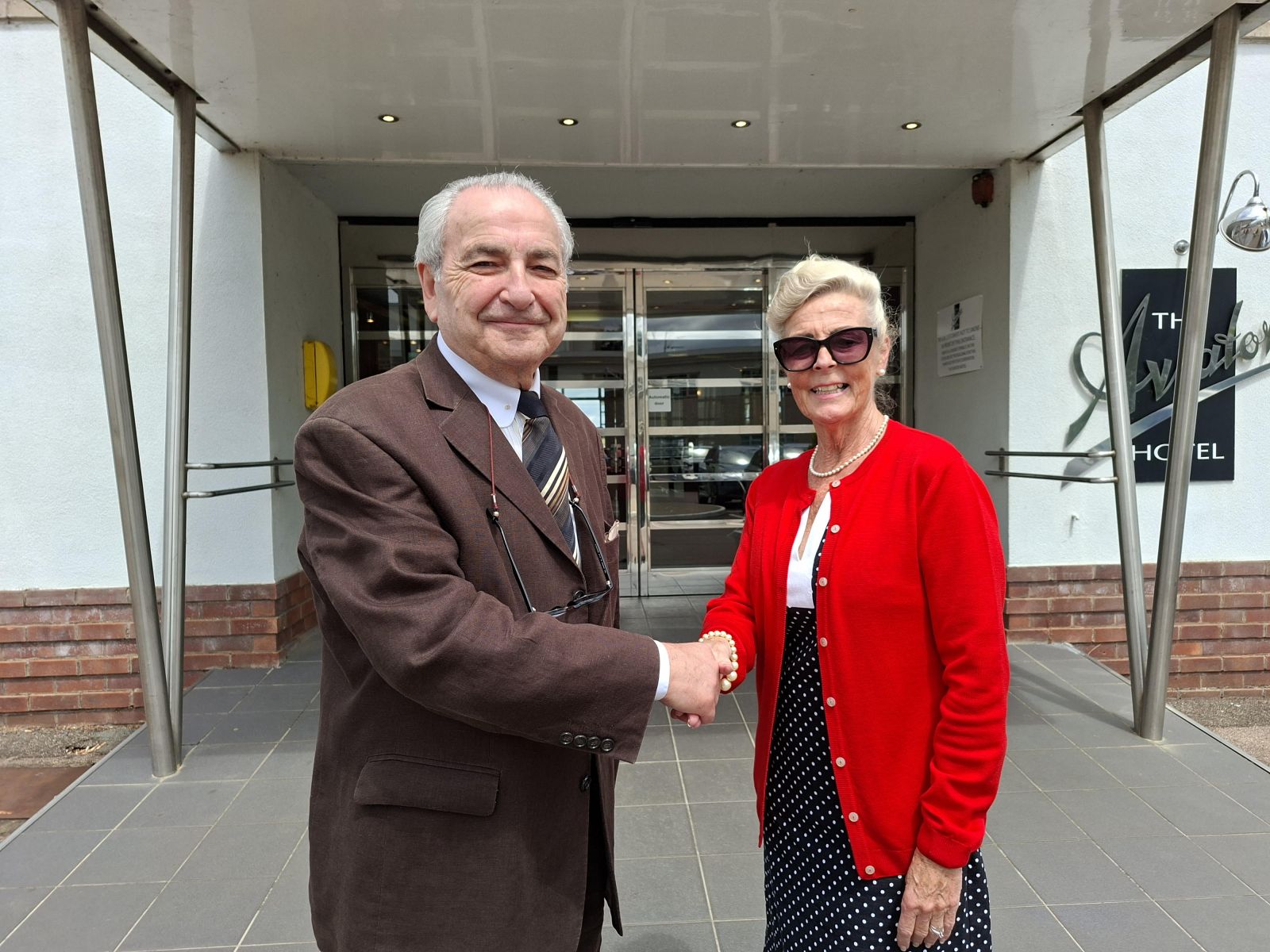
The British Cleaning Council (BCC), which is the voice of the UK’s cleaning, hygiene and waste sector, officially elected a new Chair at its recent Annual General Meeting.
David Garcia, who has served as Deputy Chair for two years, has taken over from Delia Cannings.
David has been in the industry for over 50 years and is a well-known and respected figure.
David was the founder and former Chairman/MD of Polaris (Plastics), one of the UK’s leading providers of refuse sacks, bin liners and ancillary products to the away from home market.
He has been an active member of one of the largest BCC members, the Cleaning and Hygiene Suppliers Association (CHSA), for a number of years and is currently its Treasurer and Vice-President.
David is the driving force behind the CHSA’s hugely successful undergraduate bursary scheme and is also responsible for the annual gala ball, a hugely popular event at which association members generously raise significant funds for charity.
He said: “I’m delighted and honoured to become Chair of the BCC, following on from my colleague and friend Delia Cannings."
“I applaud Delia for her fabulous job as Chair and I profoundly thank her, on behalf of the sector."
“I’ll be doing my best to fill her big boots and add to the recognition and awareness of the sector and the BCC, which has grown immensely during her leadership."
“I am delighted to say that Immediate Past Chair Delia has kindly agreed to continue to lead on the education and training strand of our work, which will be an immense help."
“I should also take the opportunity to thank another past Chair, Jim Melvin, who has been doing sterling work leading the BCC’s lobbying campaign, which has seen real and encouraging progress in recent months. I look forward to Jim hopefully continuing to lead on this vital initiative."
“The BCC has a fine history of effective and decisive Chairs over many years and I very much look forward to accepting the challenge in that respect."
“An important theme which I will be prioritising during my tenure is unity. In my opinion, it is essential that BCC members and the industry as a whole pull together."
“Our industry is one of the biggest in the UK, worth nearly £66.9bn a year to the country’s economy and one which employs 1.49 million people. Staff have a vital role keeping others safe, healthy and well."
“Yet, despite the progress made recently, our sector and staff still do not enjoy the recognition and respect we deserve."
“We in the sector can undoubtedly make our voice heard louder if we stand united. We are stronger together and must demonstrate that."
“All it leaves me to do is to reiterate how delighted and pleased I am to take over the ‘hot seat’ and that I will do everything I can to justify the faith my colleagues have shown in me.”
Under Delia’s leadership, the BCC had some notable achievements including launching the UK Cleaning Career Development Zone and clinching approval for the Level 2 Cleaning Hygiene Operative Apprenticeship. The current Government has also been much more receptive so far to the BCC’s lobbying campaign.
Delia said: “I have the satisfaction of looking back on some significant progress for the BCC and the industry on several fronts during my time in office. I am honoured to have served during such a positive and encouraging period."
“I want to say ‘thank you’ to the many colleagues who have supported myself and the BCC over the last two years."
“I extend a personal welcome to David, who is a man of phenomenal integrity and colossal industry experience, and I wish him the best for the next two years.”
Extremely Encouraging’ Government Response Recognises the ‘Vital’ Role of the Cleaning Sector and its Staff
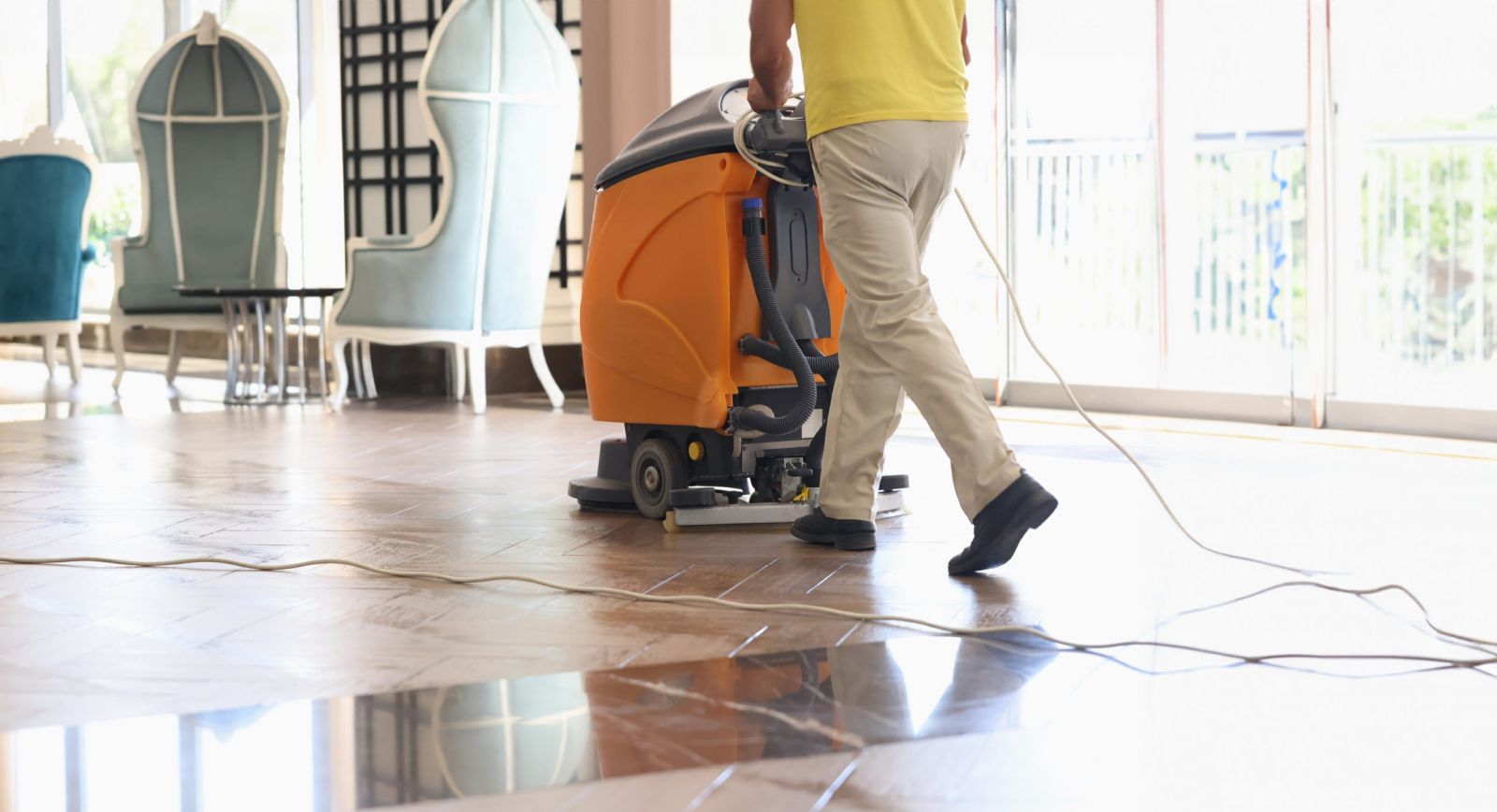
The British Cleaning Council (BCC) has hailed ‘an extremely encouraging’ response from the government to its campaign to put cleaning and hygiene at the heart of the national agenda.
The BCC has recently received confirmation that the Embedding Effective Hygiene for a Resilient UK report is being considered as evidence by the government in the ongoing review of national resilience.
As part of the long-running lobbying campaign in support of the report, the BCC wrote to Cabinet Secretary Pat McFadden last autumn to offer to contribute to the review of national resilience taking place in response to Baroness Hallett’s report of the first stage of the Covid Inquiry.
A recently received response from Parliamentary Secretary for the Cabinet Office Abena Oppong-Asare MP not only agreed with key recommendations in the report but also included important recognition from the Government for the ‘vital’ role of the sector.
Ms Oppong-Asare wrote: “I appreciate the British Cleaning Council’s continued interest and engagement in both national resilience and public health preparedness. Please note that the recommendations from the report have been recorded and are being considered as part of our ongoing evidence gathering for the resilience review.”
She went on to say: “The government recognises the vital role that the cleaning and hygiene sector plays in ensuring public health and mitigating key risks, both in its routine work and during public health emergencies.”
Ms Oppong-Asare added: “The emphasis in your letter on joint industry-government planning mechanisms, clear hygiene standards for public spaces, and public education on hygiene aligns with our broader efforts to support all actors in society to help us strengthen our national resilience.”
The BCC’s Immediate Past Chairman, Jim Melvin, who leads on the lobbying campaign, said: “I was delighted with this extremely encouraging response."
“We have been seeking recognition from the Government for the essential role of the sector and its staff for several years, so to read that this is finally being acknowledged is very welcome indeed."
“We have made encouraging progress since last summer with our lobbying campaign."
“Though processes move slowly and we have not yet secured the firm adoption of the Embedding Effective Hygiene for a Resilient UK report’s recommendations, we have achieved some clear indications that the wind may be shifting in our favour. We are now finally being listened to."
“We have responded and hope to meet to further discuss the synergies between our views and to investigate any potential opportunity in which the BCC, and therefore the industry, can assist.”
In recent months, there have been other encouraging developments.
The government’s new National Risk Register 2025 cited the need for ‘a national communications plan to increase awareness and encourage good hygiene’ which relates strongly to one of the APPG report’s key recommendations.
The BCC also made a submission to the House of Commons Public Accounts Committee inquiry into how the Government is dealing with the risk posed by antimicrobial resistance (AMR).
The results of this were encouraging. During the committee session, it was clear that there was wide agreement with the APPG report’s recommendations regarding hygiene standards in public places. The need for hand hygiene was discussed several times, the need for education around public health was highlighted and the key role of cleaning staff in helping tackle AMR was also flagged up.
The UK Health Security Agency’s (UKHSA) Deputy Director for Pandemic Preparedness has recently been in touch with the BCC to arrange a meeting. The BCC has continued to try to engage with a number of individual politicians such as the Secretary of State for Health Wes Streeting, and a wide range of MPs.
The BCC is also working to bolster its case by engaging with a very eminent physician who was significantly involved throughout the pandemic, who has been extremely helpful in advising on gathering hard evidence about the health impacts of improved cleaning and hygiene in specific venues.
It is also investigating whether a new APPG for the sector can be established (all UK APPGs were dissolved ahead of the last General Election) and is approaching other organisations with aligned agendas to create momentum.
The Embedding Effective Hygiene for a Resilient UK report was produced with BCC support in late 2022 by the former All Party Parliamentary Group (APPG) for the Cleaning and Hygiene Industry.
It contained key recommendations regarding cleaning and hygiene that will ensure the UK is better prepared for any future pandemic and also reduce the impact of current common infections such as flu.
BCC Welcomes the IWSA as a New Member
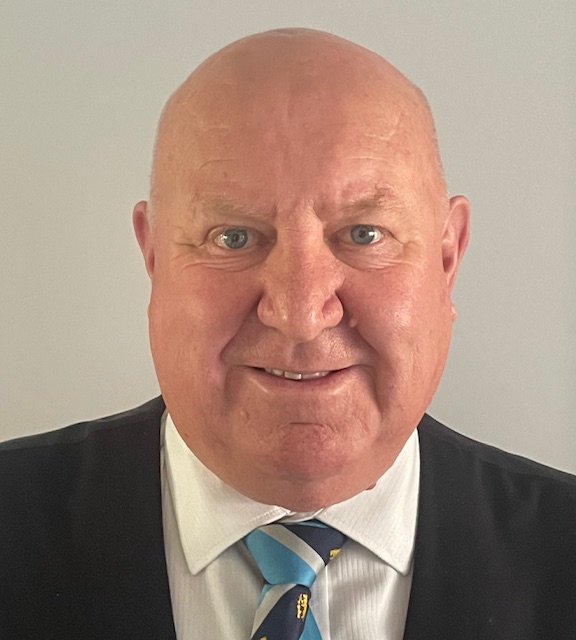
The British Cleaning Council has voted unanimously to accept the Independent Washroom Services Association (IWSA) as its latest member.
The IWSA is the nationwide, non-profit making trade association for independent providers of washroom services within the UK and Ireland.
All IWSA members sign up to a code of conduct to ensure they meet high standards and deliver a high-quality service to customers.
The BCC has warmly-welcomed the IWSA, which has become its 22nd member.
BCC Chair Delia Cannings said: “I am delighted that the IWSA has joined the BCC and I very warmly welcome it."
“The synergy between the BCC and the IWSA will strengthen both organisations and help us make the cleaning, hygiene and waste sector’s voice heard more loudly."
“This will also expand our coverage in the toilet and washroom sector, providing opportunities for our members the British Toilet Association (BTA) and the IWSA to work in partnership.”
Chairperson of the IWSA Paul Thrupp said: “These are exciting times for the IWSA, and we are grateful to the BCC and its members for the opportunity to join a wonderful trade association that does so much for the cleaning, hygiene and waste industries.
“The members of the IWSA are experienced washroom specialists who collaborate, share knowledge, and address common challenges and our mission is to establish and maintain industry standards and best practices, ensuring quality and consistency among independent washroom service providers."
“There will be many opportunities to work with other BCC members to promote our industries and particularly in respect of washroom hygiene.”
The Sky’s The Limit With The Launch of a New Cleaning Careers Development Website

A new website will transform how cleaning sector staff find out about careers development and training opportunities, and will help attract new recruits to the industry.
The UK Cleaning Career Development Zone (www.ukcleaning.org.uk) brings together information about industry training and development courses in one place for the first time, where they can be easily accessed online.
It features details of over 40 courses at frontline, supervisory and management levels and for support roles, submitted by 16 education and training bodies from across the sector as well as industry case studies, information for employers and useful links.
Industry personnel will easily be able to find the training they need to succeed in their careers on the UK Cleaning Career Development Zone, whether that means moving upwards or sideways into cleaning roles in other sectors such as hospitality, healthcare, education, engineering, manufacturing or local government, to name just a few areas employing industry staff.
Making this information more accessible will help make the sector a more attractive destination for newcomers, who will be able to find out more easily how to advance and succeed in their careers.
A new publicity campaign promoting the website will also highlight the attractions of the industry to new joiners, with the strapline ‘The sky’s the limit’.
The British Cleaning Council (BCC) developed the new website in consultation with members. It expects more courses to be featured on the site as time progresses.
BCC Chair Delia Cannings launched the website during her opening talk on the first day of the Cleaning Show.
Delia said: “This is a hugely exciting project for the whole of the cleaning and hygiene industry and it could be a game-changer in terms of helping staff progress, and in helping attract new recruits."
“The UK Cleaning Career Development Zone helps address the lack of educational structure in terms of pathways for staff progression in the sector."
“The sector has been crying out for years for disparate course information offered by different training bodies to be brought together in one place online, where it is easy to access. Visit the Zone to find out about the training you need to succeed in your career."
“Our publicity campaign for the website will highlight the incredible career opportunities the sector offers, in order to encourage new joiners. Our message to them is ‘make a career in the cleaning and hygiene sector and the sky’s the limit’.”
Visit the Zone at www.ukcleaning.org.uk. Watch out for further information on social media under the hashtag #somanyopportunities and follow the dedicated Linked In page www.linkedin.com/company/
The Cleaning Show 2025 Grows by 2000m on Previous 2023 Edition
%20(1)%20copy%202(1).png)
The Cleaning Show, the UK’s largest cleaning and hygiene event, will return to ExCeL London from 18 – 20 March 2025. With 132 exhibitors already confirmed, the event will be 2,000m bigger than the 2023 edition, and will feature a conference programme with more speakers than ever before, and 10 panel sessions across three days.
As the cleaning and hygiene sector continues to grow – currently valued at nearly £60bn in the UK alone – The Cleaning Show will bring together professionals from the contract cleaning, facilities management, healthcare, hospitality, transport, retail and public sector. With more than 7,000 attendees expected, visitors will have the opportunity to meet key suppliers, discover the latest products and services, learn from a host of well-renowned experts and network with senior specialists from across the sector.
What’s new in 2025 In addition to offering cleaning professionals the latest solutions that will define the next era for the cleaning industry, The Cleaning Show, has announced a range of new features for the 2025 event.
A shift in the Conference Theatre format will bring a series of engaging panel sessions to the three-day programme, featuring key industry experts such as Delia Cannings, Chair of the British Cleaning Council, Daisy Hunter, ESG & Innovation Manager at Jangro and Kelsey Hargreaves, Technical Manager at The British Institute of Cleaning Science (BICSc). The sessions will provide attendees with a dynamic platform to engage and learn from current challenges facing the sector, including the impact of AI in cleaning, the changing habits of the supply chain, preparing for the next pandemic and future-proofing the industry.
From navigating facilities management issues to overcoming staffing and recruitment challenges, attendees will gain insights on a range of critical topics through expert-led panel sessions and keynote presentations, offering actionable strategies to stay ahead of industry trends and improve operational efficiency. Whether it's enhancing sustainability practices, implementing new technologies, or addressing skills shortages, the carefully curated programme will help industry professionals learn, connect and inspire positive change within their organisations.
Elsewhere, the Cleaning & Support Services Association (CSSA) will host its annual Innovation Showcase, welcoming submissions from across the sector. The showcase will spotlight pioneering technologies and advancements aimed at transforming cleaning operations, from AI-driven solutions to sustainability-led initiatives. Applications for the showcase are now open and finalists will be selected to present their innovations on the CSSA stand during the event.
Commenting on the CSSA Innovation Showcase, Paul Ashton, Chairman of the CSSA, said: “It’s a fantastic opportunity for businesses of all sizes to showcase their innovations in front of the entire sector. Having the finalists on display at The Cleaning Show will provide an invaluable platform for these companies to present their products to thousands of industry professionals, sparking fresh ideas and solutions for the challenges facing the cleaning industry today.”
The return of the Window Cleaning World Cup Returning to the show floor, the Window Cleaning World Cup will take place, with Terry “Turbo” Burrows competing to defend his 29-year record of 9.14 seconds. Burrows will be joined by his daughter, Aliscia Burrows, who recently set a new women’s record with a time of 16.13 seconds at The Manchester Cleaning Show earlier this year. With both Burrows’ competing head-to-head, the 2025 World Cup will also invite exhibitors and visitors to take part, putting speed, skill and expertise to the test.
Commenting on the 2025 event, Delia Cannings, Chair of the British Cleaning Council, said: “The Cleaning Show is a fabulous showcase for one of the UK’s biggest and most important sectors and the highlight of the cleaning and hygiene industry’s calendar.
“Next year’s London show is set to be the best yet, so make sure you put the date in your diary and register for free tickets to attend. Whatever your role in the industry, you do not want to miss it.”
Paul Sweeney, Event Director of The Cleaning Show, added: “We’re thrilled to announce that due to unprecedented demand, we’ve expanded The Cleaning Show 2025 by an additional 2,000 sqm of exhibition space, making it one of the largest editions in the show’s history. It’s incredible to see such enthusiasm and innovation in the sector, and we’re looking forward to opening the doors in London next year to spotlight the very best the industry has to offer. With 132 exhibitors already confirmed, this year’s event reflects just how rapidly the cleaning industry is evolving, and we can’t wait to showcase the incredible products and technologies that are driving it forward.”
Registration for The Cleaning Show 2025 opened on 31 October 2024. Entry remains free, but visitors should pre-register online. To register and find out more about this year’s event, visit https://cleaningshow.co.uk/london/
BCC Hopeful New Government Will Listen to Lobbying Campaign
.jpg)
The election of the new Labour Government has opened new doors for the British Cleaning Council (BCC)’s campaign to make the voice of the cleaning, hygiene and waste industry heard, it believes.
The BCC extensively lobbied the previous Government in support of the All-Party Parliamentary Group (APPG) for the Cleaning and Hygiene Industry’s report Embedding Effective Hygiene for a Resilient UK, but with little success.
The industry body for the sector believes that newly-elected Labour ministers and the party’s 404 MPs are likely to be much more interested in what the sector has to say, while the Government’s agenda for growth also provides a new opportunity.
Senior members of the BCC recently met with leading industry figures and lobbying experts to review the lobbying campaign following the General Election, and to discuss whether to support the re-establishment of an APPG for the sector, after all APPGs were dissolved ahead of the election.
The group agreed on the need for the APPG to be re-established and is working to refocus and relaunch the lobbying campaign.
As a first step, it has contacted Cabinet Secretary Pat McFadden to offer to contribute to the review of national resilience taking place in response to Baroness Hallett's first Covid Inquiry report.
Immediate Past Chairman of the BCC Jim Melvin said: “Our industry strongly believes that the country lacks resilience and proper preparation for the next pandemic. The recent concern about Klebsiella pneumoniae and international alarm over the mpox virus shows that the risks have not gone away."
“Based on the proven premise that the proper practice of hygiene can help prevent, delay and mitigate the impact of a pandemic, the APPG report made 11 recommendations as to how resilience and preparedness could be enhanced by actions taken by, and in partnership, with our sector and our people."
“As repretentatives of one of the largest and most important industries in the UK, worth nearly £60bn and employing 1.47m, it is important that the Government listens to what we have to say on this issue and we are optimistic that this current Government is more likely to do that.”
Current BCC Chair Delia Cannings added: “Better hygiene nationally can help ensure that workplaces are healthier, and staff take less time off sick, which in turn will support the Government’s growth agenda."
“This is about ensuring that the Government recognises the vital role of staff and the sector in protecting the health and wealth of the nation.”
The BCC’s mini-manifesto launched before the election set out the industry’s priorities to help create a resilient UK.
Key points were:
- The urgent establishment of a joint Government/cleaning, hygiene and waste industry preparedness team to plan for public health emergencies.
- Agreement between Government and industry on the minimum levels of cleaning materials, equipment and PPE that should both be held in reserve and be able to be manufactured rapidly in emergency situations.
- In the event of another pandemic, Key Worker status must be bestowed upon cleaning operatives and on staff working in cleaning product supply and manufacturing.
- Urgent consideration must be given to making cleaning staff eligible for the Skilled Worker Visa scheme.
- Minimum standards should be agreed for the provision of cleaning and hygiene infrastructure across a wide variety of key venues.
- A standard qualification for cleaning to be developed within the Apprenticeship Levy.
- Government communications around hygiene in times of public health concerns or national emergencies should be clear, consistent, sustained, timely, relevant and specific.
Cleaning Industry Body Launches Mini-Manifesto Directed at Protecting the Health and Wealth of the Nation
.png) The British Cleaning Council’s (BCC) mini-manifesto launched today sets out the cleaning, hygiene and waste industry’s priorities to help create a resilient UK and the areas where it is seeking the next Government’s support to achieve this vital objective. The BCC is ready to work collaboratively with the new Government to ensure that cleaning and hygiene policy, law and regulation is directed specifically at preparing to protect public health both in advance of, and in the event of, another pandemic. We are calling for all political parties to embrace and support the mini-manifesto, which is directed at protecting the health and wealth of the nation.
The British Cleaning Council’s (BCC) mini-manifesto launched today sets out the cleaning, hygiene and waste industry’s priorities to help create a resilient UK and the areas where it is seeking the next Government’s support to achieve this vital objective. The BCC is ready to work collaboratively with the new Government to ensure that cleaning and hygiene policy, law and regulation is directed specifically at preparing to protect public health both in advance of, and in the event of, another pandemic. We are calling for all political parties to embrace and support the mini-manifesto, which is directed at protecting the health and wealth of the nation.
The key points are:
- The urgent establishment of a joint Government/cleaning, hygiene and waste industry preparedness team to plan for public health emergencies.
- Agreement between Government and industry on the minimum levels of cleaning materials, equipment and PPE that should both be held in reserve and be able to be manufactured rapidly in emergency situations.
- In the event of another pandemic, Key Worker status must be bestowed upon cleaning operatives and on staff working in cleaning product supply and manufacturing.
- Urgent consideration must be given to making cleaning staff eligible for the Skilled Worker Visa scheme.
- Minimum standards should be agreed for the provision of cleaning and hygiene infrastructure across a wide variety of key venues.
- A standard qualification for cleaning should be developed within the Apprenticeship Levy.
- Government communications around hygiene in times of public health concerns or national emergencies should be clear, consistent, sustained, timely, relevant and specific.
BCC Chair Delia Cannings said: “As a non-political trade body, we do not support any particular political party or candidate. Every political party needs to recollect the large number of lives lost and the significant impact on many families and society at large arising from the Covid-19 pandemic and commit to take steps to ensure lessons are learned and there is no recurrence.” Immediate Past Chairman of the BCC Jim Melvin said: “We represent the cleaning, hygiene and waste industry, which is worth nearly £60bn and is one of the largest and most important sectors in the UK. Our mini-manifesto is informed by our industry expertise and knowledge, and that of our members, with the aim of informing the next Government’s policies. It is essential that any incoming Government engages with us, listens to and acts on these recommendations.”
Cleaning and Hygiene Businesses Encouraged to Support The Hygiene Bank
Cleaning and hygiene sector firms have been thanked for supporting The Hygiene Bank – and more industry businesses are being encouraged to give their support.
The call by the British Cleaning Council (BCC) follows a recent survey carried out by the charity which found that more than three million people in the UK are thought to be experiencing hygiene poverty.
The survey published by The Hygiene Bank found that 24 per cent of people thought to be experiencing hygiene poverty were regularly struggling to wash their clothes and 29 per cent had to prioritise food instead of hygiene products.
Hygiene poverty means not being able to afford the everyday personal hygiene products many of us take for granted. It can have a negative impact on people's physical and mental health, as well as their social and economic well-being.
.jpg)
Research in recent years has highlighted the issue, with school pupils reported to be more likely to have dirty uniforms and PE kits, unwashed hair and unclean teeth and other research showing millions of adults are unable to afford essential hygiene products.
The Hygiene Bank was founded in 2018 to address the issue, by directing donations of essential hygiene products to organisations supporting those in poverty.
The donations consist mainly of new, unused, in-date personal care and household cleaning essentials.
The charity will accept a range of products such as, for example, shampoo, conditioner, face and body wash, deodorant, laundry detergent, sponges, cloths, household cleaning items, loo roll, tissues, cleaning wipes, washing up liquid, toilet cleaner, polish and sprays.

Cleaning and hygiene sector firms have been fundraising to support The Hygiene Bank and also donating products.
BCC Chair Delia Cannings said: “With the cost of living crisis continuing to put pressure on local communities, families across the country are struggling with one of the most basic human requirements – maintaining cleanliness and good hygiene. “This is an area where the cleaning and hygiene sector can make a major difference. If you represent a cleaning and hygiene business producing any of the products which are so badly needed, please think about donating what you can. I’d like to thank all the sector businesses which have already lent their support to this very worthy cause.”
Immediate Past BCC Chairman Jim Melvin added: “It is a scandal that hygiene poverty is affecting so many in the UK, including families and children."
“I want to highlight and truly thank the companies that are supporting The Hygiene Bank. When asked they responded immediately and they should be applauded accordingly. They are an example to all and I hope many more businesses in our sector will help.”
To donate products and give further support, visit www.thehygienebank.com
Cleaning, hygiene and waste industry ‘in recovery’ after Covid-19 pandemic, says newly-published research
The sector remains one of the ten biggest in the UK
New research published by the British Cleaning Council (BCC) shows how the cleaning, hygiene and waste sector is ‘in recovery’ after the challenges of the Covid-19 pandemic.
The latest figures, published today (Wednesday 13 March), show that the industry contributes nearly £59.8 billion to the economy, after a dip following the start of the pandemic. The sector remains one of the ten biggest sectors in the UK.
There are a number of positive developments for the industry to build on including the launch of the Level 2 Cleaning Hygiene Operative Apprenticeship and increased recognition for the sector post-pandemic, the 2024 research report says.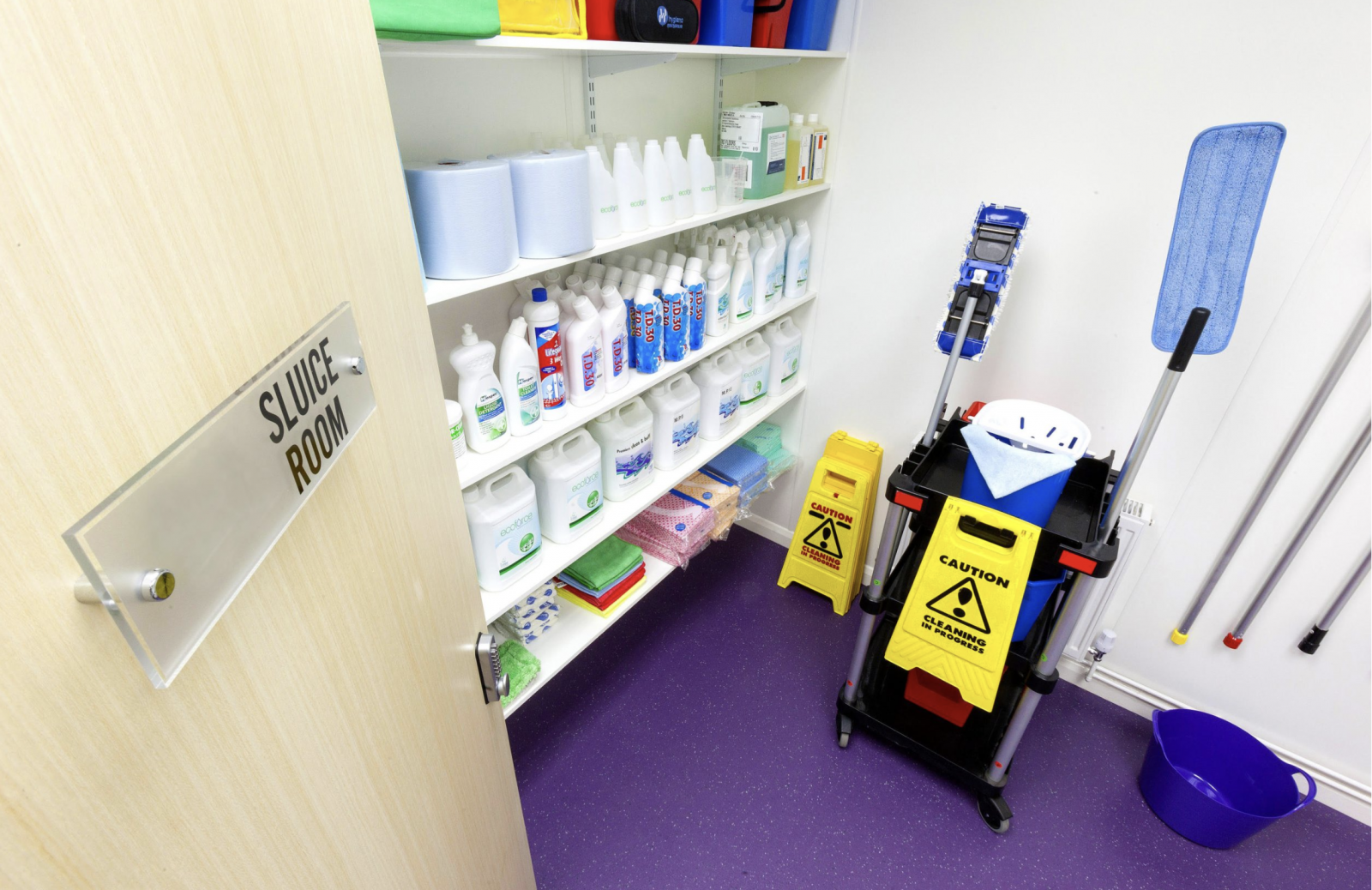
It also shows how the cleaning, hygiene and waste sector faces a ‘perfect storm of severe staff shortages’ and an ageing workforce.
Figures quoted in the document show that the entire sector was worth £58.9bn in 2019, but this dipped to £57bn in 2020 before increasing again in 2021. All subsectors, bar landscape service activities, saw growth in turnover in 2021 after a dip the previous year.
If occupations involved in cleaning across other industries such as public services and hospitality are included, the total number of individuals working in the industry is 1.47 million. This equates to approximately five per cent of the UK workforce.
The sector continues to grow, with a reported 75,565 businesses operating in 2023, up from 73,655 businesses operating in 2022, most of which are micro-businesses.
The launch of the Level 2 Cleaning Hygiene Operative Apprenticeship on 1 January is a ‘significant development for the sector which will bring major benefits’, enabling millions of pounds of Apprenticeship Levy funds paid annually by the sector to the Government to be invested in staff training instead.
Other positive developments cited in the report include the increased recognition of the important role of cleaning and hygiene staff following the Covid-19 pandemic and evidence that the public are reassured by seeing cleaning staff at work in public spaces.
The BCC’s We Clean, We Care campaign also provides an opportunity to bring BCC members and the wider industry together to raise the profile of the sector and its staff.
The All-Party Parliamentary Group (APPG) for the Cleaning and Hygiene Industry’s report Embedding Effective Hygiene For A Resilient UK report is a key asset highlighting the importance of making cleaning and hygiene a national priority.
The research report points out that the industry continues to struggle to replace staff who have left the sector in the wake of the pandemic and Brexit, with other staff having moved to new roles. There are a record number of job vacancies across the UK in a wide variety of industries, adding to the recruitment challenge, it says.
With only nine per cent of staff aged under 25 and 27 per cent aged over 55 years, the ‘industry as a whole needs to continue to do more to attract younger workers into the sector. Continuing to raise the profile of the industry is vital to attract workers,’ the report says.
Many in the industry would also like to see a change in public policy to allow Apprenticeship Levy funds to be used for a wider range of development opportunities, including more flexible training options, the report adds.
In the three years since the APPG for the industry was established, there has been ‘minimal engagement on the part of the Government’ in areas other than the apprenticeship, it says.
BCC Chair Delia Cannings said: “Our annual research report about the cleaning, hygiene and waste industry is a key document for the sector. It takes a detailed, informative and rigorous look at the industry and its sub-sectors, full of revealing statistics and facts. If you are interested in reading the report, please contact us and we will be happy to provide a free copy.
“The report highlights the essential role of the sector and its staff in keeping the nation’s workplaces, hospitals, educational establishments, transport facilities and public spaces safe, clean and pleasant to use, contributing to the nation’s health and wealth."
“That vital contribution to infection prevention and control became so much more visible during the Covid-19 pandemic, highlighting the importance of the sector in the wider public consciousness. The pandemic has left many of the current workforce mentally and physically exhausted – particularly those in the healthcare sector."
“The report demonstrates that the cleaning, hygiene and waste sector remains one of the ten largest in the UK, though it has been impacted by the challenges of the Covid-19 pandemic and the economic shock of Brexit and is still in recovery. There are some positive developments to build on and also some issues still needing to be overcome.”
Free, digital copies of the BCC’s 2024 research report are available by emailing compsec@britishcleaningcouncil.org
Industry leader calls on Government to lead targeted hand hygiene campaign
Jim Melvin’s letter calling for action printed in The Times
A letter from former British Cleaning Council (BCC) Chairman Jim Melvin calling for the Government to take action on hand hygiene has been printed in The Times.
In the letter, Jim Melvin, who is Master of BCC member The Worshipful Company of Environmental Cleaners (WCEC), noted the ‘absence of any true Government plan to cope with a resurgence of Covid-19 or prepare for future pandemics’ and called for additional steps to be taken immediately. %20(1)%20(2)%20copy.jpg)
He wrote: “One would be for the Government to lead a ‘targeted hygiene’ campaign to support the owners and operators of public spaces to implement measures that help the public to practise simple and effective hand hygiene."
“By helping to suppress the spread of disease, this would reduce pressure on health services, maintain productivity and increase the public’s still fragile confidence in using public transport and public places.”
There were examples of major events where these measures had been successfully implemented, he wrote in the letter, which was published on 15 January, adding that there was a ‘moral imperative’ to quickly take ‘proven actions’.
The BCC and 21 industry associations have been calling for the Government to adopt the recommendations in the Embedding Effective Hygiene for a Resilient UK report since last year.
Delia Cannings, Chair of the BCC, said: “I am delighted to see that Jim is helping keep the important issue of hygiene in the spotlight." .jpg)
“Improved hand hygiene is important nationally but only one of a series of essential measures that we believe the Government should take."
“We want the Government to put cleaning and hygiene at the heart of the national agenda and adopt in full the recommendations in the Embedding Effective Hygiene for a Resilient UK report."
“Taking these steps will ensure that the lessons of the Covid 19 pandemic are learnt and the public’s health is protected in future.”
Sector staff have been asked to contact their MP in support of the campaign. To find out how to get involved, visit https://britishcleaningcouncil.org/2023/02/06/download-letter-here.
The Embedding Effective Hygiene for a Resilient UK report was compiled by the All-Party Parliamentary Group for the Cleaning and Hygiene Industry. It made 11 key recommendations, summarised below:
· The establishment of a joint Government-industry preparedness team to plan for public health emergencies.
· Minimum levels of cleaning materials and equipment to be agreed and made available in readiness.
· Thought to be given to how to increase production during a public health emergency.
· Key frontline worker status must be bestowed upon cleaning operatives and staff working in supply and manufacturing if a pandemic happens.
· Urgent consideration to be given to making cleaning staff eligible for the Skilled Worker Visa scheme.
· Minimum standards for hygiene infrastructure and cleaning in diverse venues to be agreed.
· A standard qualification for cleaning to be developed within the Apprenticeship Levy.
· Training budgets for cleaning operatives should be adequate.
· Government communications around hygiene in times of pandemic should be clear, consistent, sustained, timely, relevant and specific.
· The Government should use behavioural science-based communication campaigns to promote hygienic behaviour to the public.
· The Government should support the cleaning and hygiene industry in realigning perceptions of the industry.
BCC ‘thrilled’ to announce approval for the Cleaning Hygiene Operative Apprenticeship
Millions of pounds a year could potentially be invested in training sector staff
Proposals for an Apprenticeship Standard for the cleaning and hygiene industry have been approved, potentially paving the way for employers to invest millions of pounds annually in training sector staff.
The British Cleaning Council (BCC), which made achieving the Cleaning Hygiene Operative Apprenticeship one of its key priorities, is aiming to support the launch of the Apprenticeship Levy funded programme early in 2024.
It will be hosting a series of expert-led AAG (Apprenticeship Advice and Guidance) Zoom information sessions starting in October, where employers can find out what the Cleaning Hygiene Operative Apprenticeship means for them and how to implement it in their workplace.
Employers are being encouraged to watch out for details of the free sessions, which will be announced via sector media, the BCC website (https://britishcleaningcouncil.org) and the BCC’s social media channels.
All employers with an annual pay bill of more than £3 million have to pay around 0.5 per cent towards the Apprenticeship Levy.
Because there hasn’t been a relevant Apprenticeship for many cleaning and hygiene businesses to invest in, millions of pounds of Levy funding paid by the sector annually has gone to the Government instead.
The decision by approving body The Institute for Apprenticeships and Technical Education (IfATE) to give the greenlight to the proposals means those businesses will now be able to use their Apprenticeship Levy payments to fund staff to complete training for a Cleaning Hygiene Operative Apprenticeship.
BCC Chairman Delia Cannings said: “My BCC colleagues and I are thrilled and delighted by this news. The Cleaning Hygiene Operative Apprenticeship will be a major and valuable contribution to the future success of the cleaning and hygiene sector.
“Accessible learning for all funded by the Apprenticeship Levy pot is a first of its kind and long overdue."
“It has been a huge, complicated and at times frustrating piece of work and it has taken much, much longer than expected, so it was hugely exciting when we finally heard that it had been given the greenlight."
“I can’t overstate how important this is in terms of addressing the sector’s recruitment issues, helping with succession planning and supporting the professional development of our staff."
“Providing uniform, industry-wide qualifications will help win wider recognition for the vital, skilled work that the sector’s personnel do with pride and professionalism."
“With such an important role in keeping the public healthy, safe, and well, particularly during the turbulence caused by the Covid-19 pandemic and with the risk of another such pandemic in the future, it is vital that this training programme is put in place."
“Handling chemicals, understanding the differences between cleaning and disinfecting, science-based cleaning techniques, the contribution the sector can make to the green agenda and the increasingly important role of technology are all crucial and need to be covered."
“It is long past time that our industry, as one of the biggest in the UK, had an Apprenticeship Standard for cleaning and hygiene staff."
“We have to give a massive vote of thanks to Lauren Kyle, Karen Slade, and their team, who have worked exceptionally hard on this to get it over the line. Thank you also to my predecessor as BCC Chair Jim Melvin and the many employers and colleagues who also gave their support.”
Previous attempts by the industry to win approval for an Apprenticeship for the entire cleaning and hygiene sector did not succeed.
The BCC launched the latest attempt in 2021 by sponsoring a Trailblazer group, comprising major companies from the sector along with supporting stakeholders, to spearhead the development of the Apprenticeship. A wide range of businesses in the sector gave it their backing.
A Healthcare Cleaning Operative (HCO) Apprenticeship was approved in early 2020 however it is largely focused on the cleaning activity carried out across the NHS. Now we have access to pathways and routes to enable the wider cleaning communities to become qualified and recognised for the key role they play regarding the health wellbeing and resilience of the UK.
BCC Chair appeals for more staff to back ‘common sense’ proposals to make cleaning and hygiene a national priority
The British Cleaning Council (BCC) has thanked the more than 450 industry members who have so far backed its campaign to make cleaning and hygiene a national priority.
It comes as a new assessment rating the likelihood of a pandemic in the future shows how important it is that the Government takes the measures being demanded in the campaign.
The recently published National Risk Register, ranked the chances of a future 'catastrophic' pandemic as up to 25 per cent.
The campaign is calling for the Government to accept in full the 11 recommendations in the report by the All-Party Parliamentary Group (APPG) for the Cleaning and Hygiene Industry, entitled Embedding Effective Hygiene for a Resilient UK.
The measures would make the UK much more resilient to current common infections such as flu and also better prepared for future public health emergencies - like the future pandemic flagged up by register.
BCC Chair Delia Cannings said: “I want to say a huge thank you to everyone who has backed the campaign so far. But if you haven’t, please do take part. It is literally a matter of life and death and it should only take a few minutes to get involved.”
“We need your help to make the voice of the cleaning and hygiene sector heard and guard against more tragedies in the future."
“As the general public seek reassurances regarding cleaning standards, we must stand together to reinforce the value of the role our cleaning and hygiene operatives play. After all, let’s not forget they are the guardians of the standards."
“Brave cleaning staff were on the frontline in the battle against the Covid pandemic and the risk of a pandemic returning shows how the role of our sector's professional and skilled personnel in keeping people healthy, well and safe continues to be vital."
“Persuading the Government to take the steps recommended by MPs in last year's report will also help save lives and protect public health by guarding against common infections like flu."
“Surely it is only common sense to learn the lessons of the Covid-19 pandemic and keep cleaning and hygiene at the top of the agenda going forward.”
The British Cleaning Council and 21 associations from across the cleaning, hygiene and waste industry announced a campaign in February asking sector staff to help lobby MPs to make cleaning and hygiene a national priority.
Industry colleagues are being asked to download a pre-written letter from the BCC website calling on the Government to accept the APPG’s recommendations, and email it to their local MP along with the report.
The BCC has circulated a QR code which people can scan or they can visit https://britishcleaningcouncil.org/2023/02/06/download-letter-here to find the letter, APPG report and details of their local MP.
The drive takes place under the umbrella of the BCC’s We Clean, We Care campaign, which reflects the pride that skilled and professional cleaning staff have in the vital, frontline role.
The Embedding Effective Hygiene for a Resilient UK made 11 key recommendations, summarised below:
- The establishment of a joint Government-industry preparedness team to plan for public health emergencies.
- Minimum levels of cleaning materials and equipment to be agreed and made available in readiness.
- Thought to be given to how to increase production during a public health emergency.
- Key frontline worker status must be bestowed upon cleaning operatives and staff working in supply and manufacturing if a pandemic happens.
- Urgent consideration to be given to making cleaning staff eligible for the Skilled Worker Visa scheme.
- Minimum standards for hygiene infrastructure and cleaning in diverse venues to be agreed.
- A standard qualification for cleaning to be developed within the Apprenticeship Levy.
- Training budgets for cleaning operatives should be adequate.
- Government communications around hygiene in times of pandemic should be clear, consistent, sustained, timely, relevant and specific.
- The Government should use behavioural science-based communication campaigns to promote hygienic behaviour to the public.
- The Government should support the cleaning and hygiene industry in realigning perceptions of the industry.
BCC elects new Chair and Deputy Chair
Delia Cannings takes over from Jim Melvin
The British Cleaning Council (BCC), which is the voice of the UK’s cleaning, hygiene and waste sector, officially elected a new Chair and Deputy Chair at its recent Annual General Meeting.
Delia Cannings, who has served as Deputy Chair of the BCC for the past two years, has taken over the Chair from Jim Melvin.
Delia is a well-known and respected figure in the industry, having worked in the sector for 45 years and in fields including both the public and private sectors and the cleaning, health, hospitality, commercial, education and training sectors.
Delia is the owner and Executive Director of Environmental Excellence Training & Development Ltd, which she founded. She is also National Lead for Education and Training for BCC member the Association of Healthcare Cleaning Professionals (ahcp) and Deputy Chair for the UK Housekeepers Association (UKHA), Midlands Committee.
Delia plans to continue with existing BCC priorities, as well as championing education and training in the sector and calling for Government to allow more Apprenticeship Levy funding paid by cleaning and hygiene businesses to instead be invested in industry initiatives.
She said: “I am truly humbled to be elected as the second ever Chair lady of the BCC. My passion for this industry began many years back."
“I have been honoured to observe some great leaders in the field building bridges and striving for change. Combined with the advancement of cleaning technology, these things have inspired me and enabled the sharing of best practices across the industry by way of education and training."
“We have work to do, that is for sure. Jim Melvin has left big shoes to fill, and I will give my heart and soul to solidifying the footprint already created in support of the work led by a great man and inspirational leader Jim Melvin.”
The meeting also elected a new Deputy Chair, David Garcia, who is also a leading industry figure.
David has been closely associated with BCC council for a number of years and is Treasurer and Vice-President of BCC member the Cleaning & Hygiene Suppliers Association (CHSA).
He has been in the industry


.jpg)
